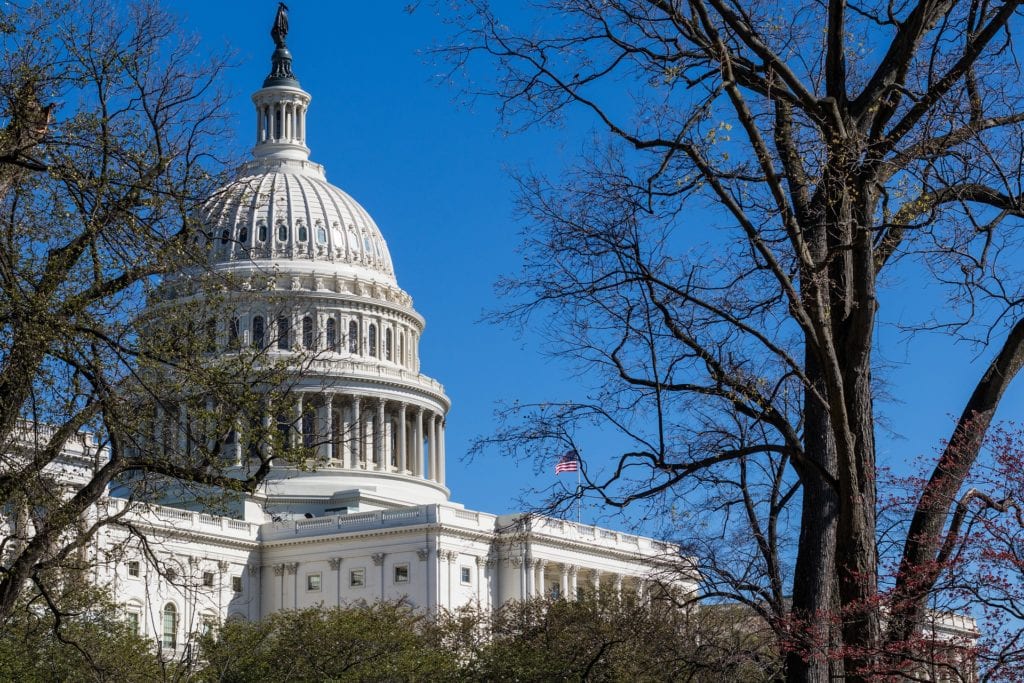By A. Altieri D’Angelo
Recently, a small group of moderate Senators managed to bridge the gap between Senate Democrats and Republicans, bring a COVID-19 relief bill to a vote, and see it passed; this was no small achievement. Their leadership enabled both sides in the Senate to reach common ground. This group (referred to as the Centrist Group) will become President Biden’s most critical Senate ally.
The Democrats currently hold 48 seats (including two independents). In 2021, they will also have Vice President Kamala Harris presiding over the Senate (as President of that chamber). She will have the ability to cast tie-breaking votes. The Republicans, in 2020, hold 52 seats, but two seats are up for reelection in Georgia. There will be a 50 to 50 split if the Republicans lose both Senate races.
A 50-50 split represents gridlock; in fact, a 48 to 52 could easily lead to a stalemate if a few members fail to support their party. And such voting parity gives Centrists a significant ability to influence legislation. Without their support, neither party will be able to pass any legislation.
The Centrists includes a core group of Senators: Murkowski (R), Romney (R), Manchin (D), Collins (R), Warner (D), Cassidy (R), and King (Independent). They are people known for working in a bipartisan way and always seeking to compromise to get things done. The Centrists have been frustrated by the dysfunction in the Senate for a long time. They have spoken out publicly about the failure of a partisan Senate to pass significant legislation. They did not have much power in the Senate as the Republicans had a large enough majority to ignore the Centrists on most occasions. However, with a Senate that will continue to be gridlocked, the Centrists will have an enhanced power base that neither party can dismiss.
(It is important to note that the introduction of bills rests solely with the Senate’s Speaker, currently Mitch McConnell (R). If the Democrats win the two Georgia Senate seats, Chuck Schumer (D) will become Speaker.)
Biden and the Centrist share a common political philosophy; they seek to govern with common sense. They know what is required to have legislation passed in the Senate. They also know that President Biden will not win over conservative Senate Republicans. Republican opposition will be a significant problem for Biden. His only hope is to seek support from the Centrists as well as members of his party. However, he will only be able to gain their support if he sets out a moderate legislative agenda. But setting out centrist plans will enrage the Progressive Wing of the Democratic Party (the Progressives). They have been pushing for sweeping changes; their concerns include eliminating systemic racism, climate change, social medicine, reducing the wealth gap, education, etc. They will expect Biden’s full support of their plans.
Biden, and many other moderates, believe Progressives’ proposals are too radical and are concerned that such plans will offend many voters (from both parties). Biden has already stated that Progressives’ language was the significant cause of the losses suffered by Democrats in the House of Representatives elections. He specifically cited the phrase “defund the police” as a particularly damaging phrase that led to House Democrats’ election defeats. Progressives objected to Biden’s comments. They believe they were elected to challenge the status quo in government policy. They insist moderate politicians are out of touch with American voters’ needs and will not alter their approach.
Progressives will exert pressure on the Biden Administration to aggressively implement new far-reaching laws. Biden will need the Centrists to act as a shield and block the Progressive’s agenda. Biden will argue that the Centrists will not support such radical plans; therefore, there would be no chance of enacting such legislation. He will try to make the Progressives realize they must compromise and accept a less radical legislative agenda or watch Senate Republicans and Centrist vote down their proposals. (Unfortunately for the Progressives, the Centrists have more influence in the Senate than the Progressives have in both chambers.)
Centrists have indicated they will not support the Progressive’s agenda. Centrists want climate change legislation but not the Green New Deal. They want better medical coverage for the nation but not Medicare For All. They are not for expanding the number of Supreme Justices (another Progressive demand) but do see a need to change the Senate’s rules and make it more efficient and effective. They will not support “defunding the police” but would consider adding resources for retraining police, community policing, and minority business investment.
For the first time in years, the Centrist may make the Senate more productive, which can only benefit the U.S. and its citizens.



















